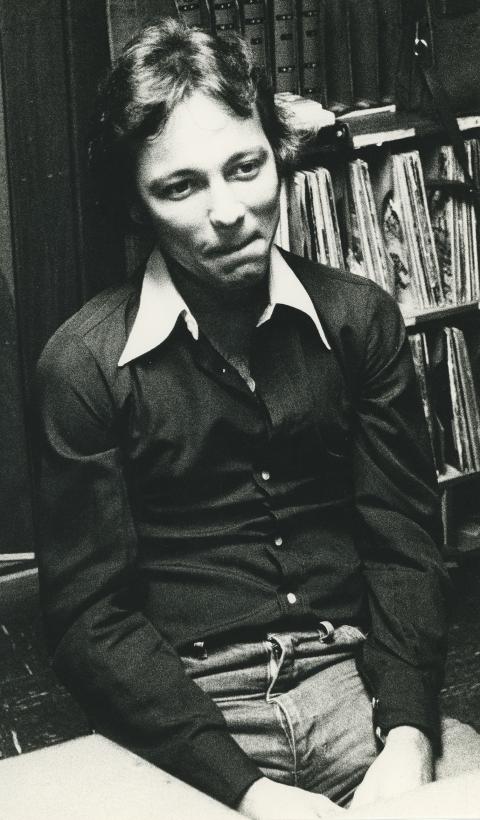The New York Public Library for the Performing Arts joins Lincoln Center in celebrating the life and work of Panamanian singer, songwriter, actor, and political figure Rubén Blades with three case displays on our third floor. Blades is widely regarded as one of the most influential and important figures in Latin music, particularly in the salsa genre. While his contributions span multiple fields—including music, film, and politics—this display combines archival artifacts found in the Music and Recorded Sound Division at the Library with items on loan from the artist with a special emphasis on his musical output. This case displays invite visitors to discover the passion, creativity, and activism that define Blades’ extraordinary musical journey and explore the enduring impact of his cultural contributions worldwide.
Blades is known for revolutionizing salsa music in the 1970s and ‘80s. In that period, he worked with major salsa musicians and bands, particularly with Fania Records, the famous New York-based salsa label. He pioneered a poetic and socially conscious strain of salsa, and his ability to fuse Afro-Caribbean rhythms with meaningful storytelling made him one of the most respected figures in music.
Blades’ commitment to equality and justice extends beyond the message in his music. His thoughtful and socially aware lyrics address poverty, freedom, and political corruption, with his narrative style often painting vivid pictures of urban life and political struggles.
He ran for president of Panama in 1994 as part of the Papa Egoró Movement, a political party he founded, and while he didn’t win, he became a significant political figure in his country. Later, he served as Panama’s Minister of Tourism from 2004 to 2009.
Blades’ unique blend of artistry and activism has cemented his legacy as a multifaceted cultural icon whose influence continues to resonate across music, film, and social justice advocacy.


